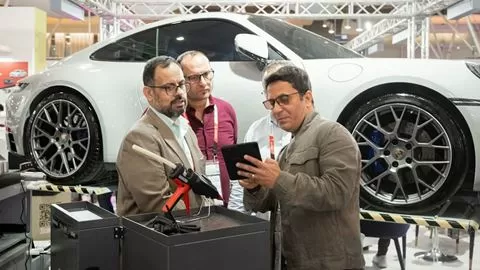With the ever-increasing demand for new cars, the automotive industry is constantly evolving and seeking new ways to improve the performance, efficiency, and safety of vehicles. One technology that has been gaining momentum in recent years is nanotechnology. With approximately 50 million new cars being produced globally each year, nanotechnology has a huge opportunity to revolutionize the automotive industry.
Nanotechnology is the manipulation of matter on an atomic and molecular scale, typically between 1 to 100 nanometers. This technology has the potential to enhance the properties of materials and create new materials with superior characteristics. In the automotive industry, nanotechnology has the ability to improve the performance of vehicles, reduce their environmental impact, and enhance the driving experience for consumers.
One of the main areas where nanotechnology is making a significant impact is in the development of lightweight and strong materials. With the increasing focus on fuel efficiency and reducing emissions, car manufacturers are constantly looking for ways to make vehicles lighter without compromising on safety. Nanotechnology allows for the creation of materials that are both lightweight and strong, making them ideal for use in the automotive industry. For example, carbon nanotubes are 100 times stronger than steel, yet much lighter. This means that cars can be made with less material, resulting in improved fuel efficiency and reduced emissions.
In addition to making cars lighter, nanotechnology also has the potential to make them more durable. By incorporating nanoparticles into the manufacturing process, materials can become more resistant to wear and tear, as well as corrosion. This means that cars can have a longer lifespan, reducing the need for frequent replacements and ultimately reducing the environmental impact of the automotive industry.
Another area where nanotechnology is making a significant impact is in the development of smart coatings. These coatings are made up of nanoparticles that can self-heal, repel water and dirt, and even change color. In the automotive industry, these coatings can be used on the exterior of cars to protect them from scratches and damage, as well as on the interior to make surfaces easier to clean and maintain. This not only improves the overall appearance of the car but also reduces the need for frequent cleaning and maintenance, making it more convenient for car owners.
Nanotechnology is also playing a crucial role in improving the safety features of vehicles. By incorporating nanoparticles into the manufacturing of car parts, such as airbags and seatbelts, these safety features can become stronger and more effective. For example, nanoparticles can be used to create stronger and more flexible airbags that can better absorb impact during a collision. This not only improves the safety of drivers and passengers but also reduces the risk of serious injuries.
Apart from improving the performance and safety of vehicles, nanotechnology is also making a significant impact on the driving experience for consumers. With the development of nanosensors, cars can now have advanced features such as self-parking, collision avoidance, and lane departure warning systems. These sensors are made up of tiny nanoparticles that can detect and respond to changes in the environment, making driving safer and more convenient for consumers.
Furthermore, nanotechnology is also being used to improve the energy efficiency of cars. By incorporating nanoparticles into the manufacturing of batteries, they can become more efficient and have a longer lifespan. This means that electric and hybrid cars can travel longer distances on a single charge, making them a more viable option for consumers. Additionally, nanotechnology is also being used to develop more efficient solar panels, which can be used to power electric cars, reducing their reliance on traditional energy sources.
The potential of nanotechnology in the automotive industry is vast and continues to expand as new developments are made. With the increasing demand for more sustainable and efficient vehicles, nanotechnology has a crucial role to play in shaping the future of the automotive industry. It has the potential to not only improve the performance and safety of vehicles but also reduce their environmental impact and enhance the driving experience for consumers.
In conclusion, with approximately 50 million new cars being produced globally each year, nanotechnology has a huge opportunity in the automotive industry. Its ability to improve the performance, efficiency, and safety of vehicles, as well as enhance the driving experience for consumers, makes it a game-changer in the industry. As more research and development is done in this field, we can expect to see even more innovative and advanced applications of nanotechnology in the automotive industry in the near future.

